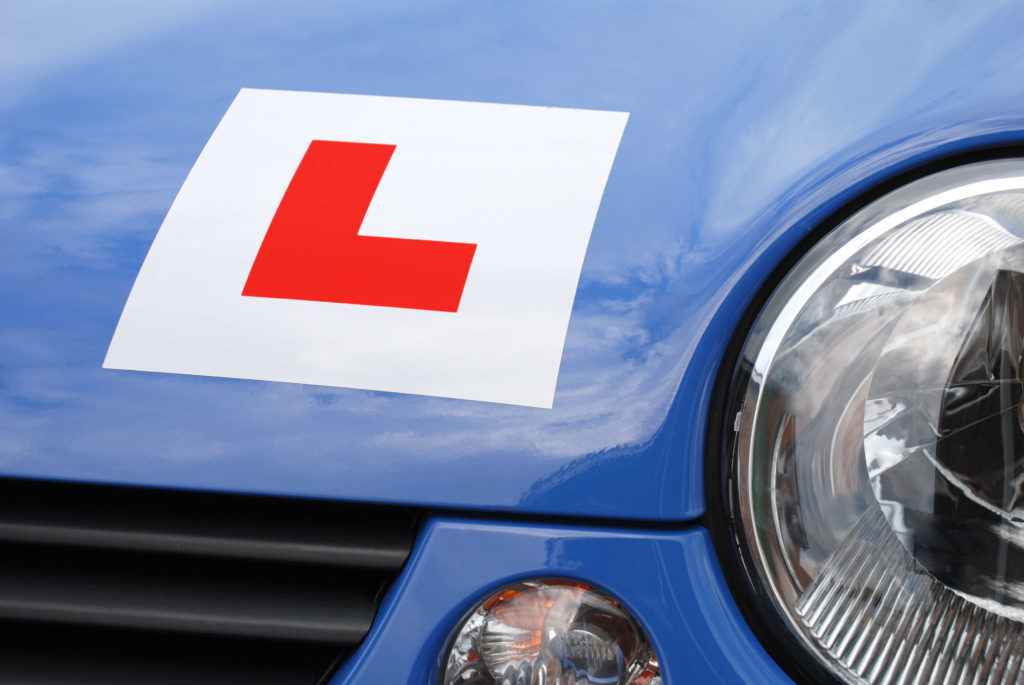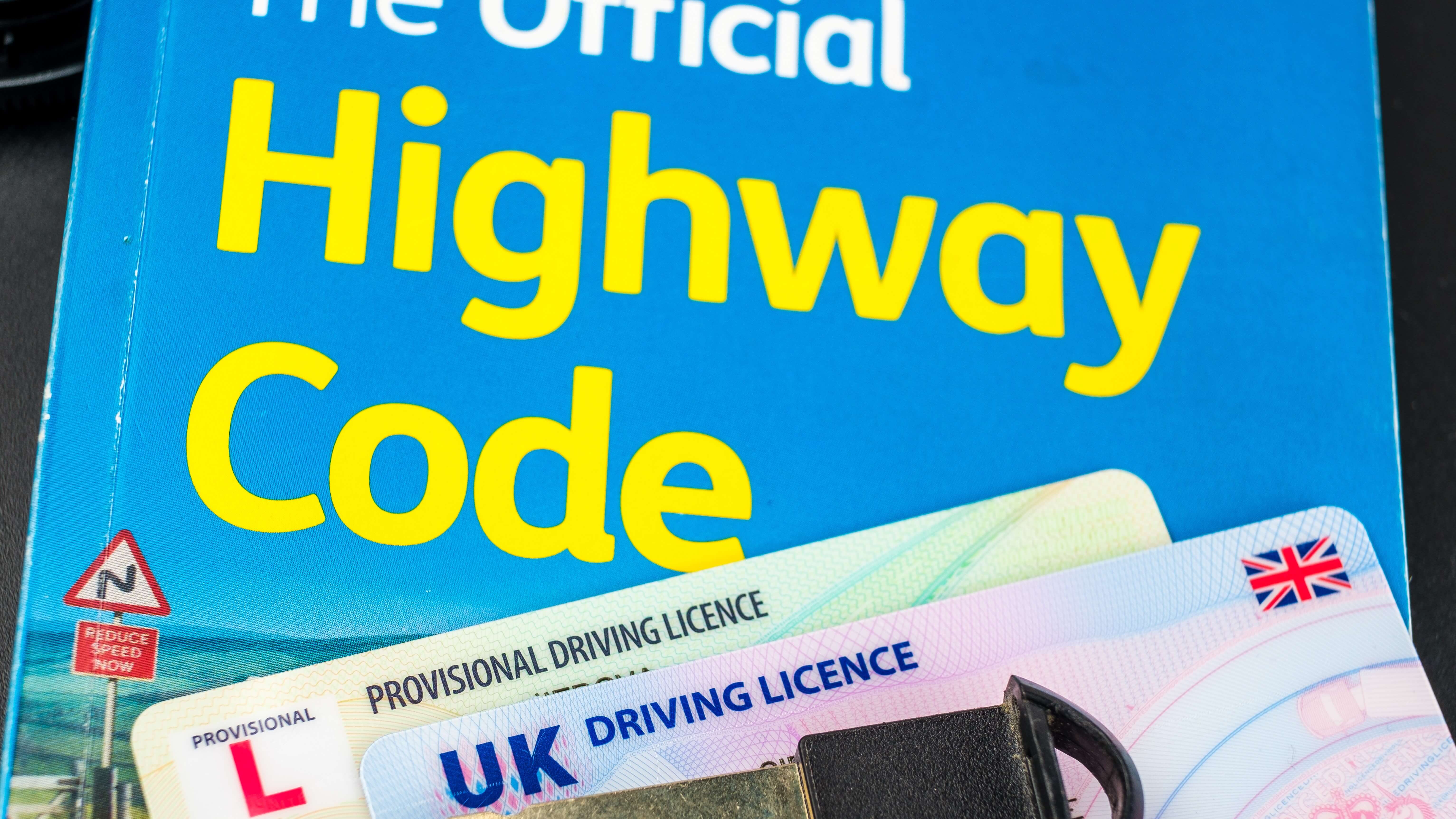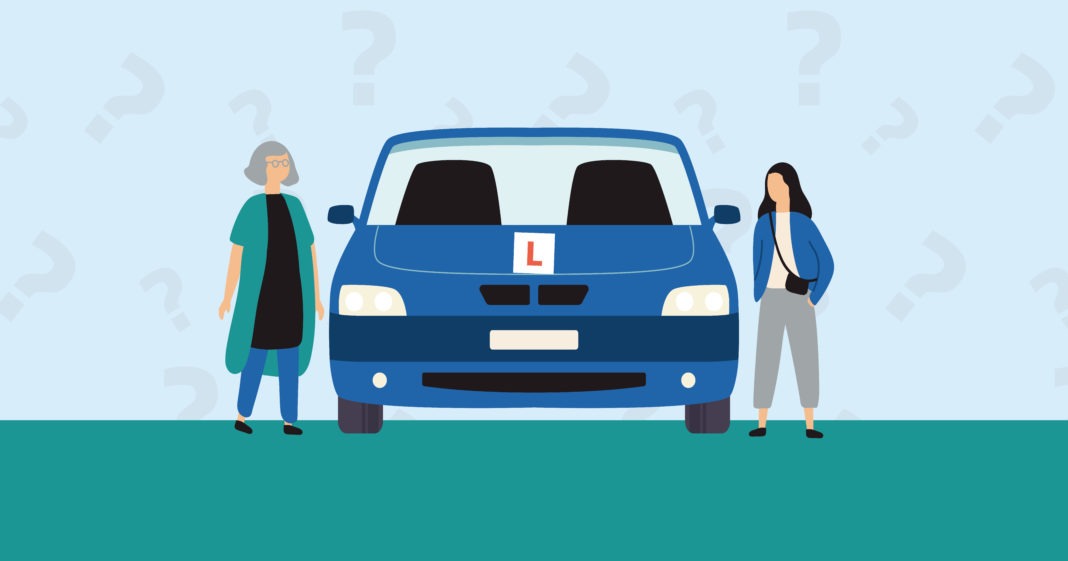Last Updated on June 8, 2023
If you wish to supervise a learner driver, you may already be aware that private practice outside of driving lessons is promoted by the DVSA. Private practice is an important tool as it can help learner drivers gain vital experience.
There’s myriad of laws, insurance and planning to navigate before you embark on supervising a learner driver.
In this article we cover some top tips that will help you as a supervising driver help your learner driver.
Check your eligibility to supervise a learner driver
First of all you want to ensure you’re legally qualified to supervise a learner driver. You can supervise a friend or family member if:
- You’re at least 21 years old
- You’re licenced to drive the same type of vehicle the learner is driver e.g. if they’re learning in a manual, you must have a manual licence
- You’ve held a full licence for at least 3 years from the UK, EU, Switzerland, Norway, Iceland or Liechtenstein)
It is deemed illegal to accept payment, including money for fuel, if you’re supervising a learner driver.
What knowledge do I need to be able to supervise?
You must have full knowledge of The Highway Code, and be able to apply the rules in order to supervise a learner driver. The code is updated regularly, so make sure you check often for any recent updates.
To help stay up to date with The Highway Code, all learner drivers receive free access to the premium version of RoadHow, which includes access to the latest version of The Highway Code.
Ensure the vehicle you are supervising your learner in is suitable
Learner driver can practice driving in any make or model of car, however the car must:
- Be fitted with L plates (or D plates in Wales) – the plates must be fitted to both front and back
- Be taxed
- Have a valid MOT (if required)
- Be safe to drive – this is an ideal opportunity to work with the learner to check before each practice session
- Be registered with DVLA

Purchase car insurance to cover the learner driver
When practicing learning to drive, the learner can be added to the vehicle owners insurance as a ‘named driver’. It is important to remember however that your no claims bonus could be affected if the worst was to happen and you need to claim.
Alternatively, you could purchase insurance to cover the learner driver in your car. With Collingwood learner driver insurance, your no claims bonus is protected if the learner driver had a bump.
There is also the option that the learner could purchase provisional licence insurance on their own car. To do this, the learner must be the registered keeper. An annual learner driver insurance policy with Collingwood can also provide a learner driver with the opportunity to earn a no claims bonus.
Great news! If the learner driver would also like to take driving lessons with a qualified instructor in their own car, Collingwood learner driver insurance covers them for this.
A learner driving without insurance can receive an unlimited fine, a driving ban and up to 8 penalty points.
Plan your practice sessions with the learner driver
If the learner driver is undertaking lessons with a driving instructor, it’s always best to let the instructor know you’ll be undertaking some private supervised practice.
The driving instructor may also be able to help you plan your practice sessions by informing you of potential manoeuvres or routes to practice.
It could be really handy to keep a record of what you have practiced, or which routes you have driven each session. To help with keeping a log, the DVSA have created a helpful document perfect for updating after each session.
Where can a learner driver practice?
Discuss with the learner driver what types of roads will work best in your practice sessions. You could practice on country roads or dual carriage ways for example. You may also wish to include traffic lights or a steep hill…that hill start could always come up on a test!
Remember, when you’re on a practice session you must never drive on a motorway. Learners can only practice motorways with an approved driving instructor in a dual control car.
When can a learner driver practice?
Like you would with your route, discuss the time of day the learner driver would like to practice with you. When arranging a suitable time, think about how busy certain roads may be at different time of the day.
If you’re practising manoeuvres in a car park, again consider the time of day and try to use a quiet area of the car park with the most free bays.
It’s important to practice during the day and at night, so think about how light or dark it may when you are planning your practice sessions.
It may be best to avoid busier roads, or driving in the dark until the learner is driving in heavier traffic and lower light.
Before your practice sessions
Check in with your learner driver before each practice session and consider rearranging if they’re perhaps sad or tired. Likewise, if you’re not in the right frame of mind to supervise a learner driver it is always best to rearrange.
How can I supervise the learner as they practice driving?
Remember, as the full licence holder the car is you’re responsibility, even when it is the learner driver at the wheel.
There are also rules you must follow at all times as a supervising passenger. You must refrain from:
- Using a mobile phone, sat nav or tablet – using a device for any reason at all is illegal
- Drinking alcohol and supervising a learner driver, as your judgement can be seriously impaired. If your breath or blood alcohol is higher than the legal limit, you’re breaking the law, even as the passenger
- Supervising a learner driver if you’re under the influence of medicine or drugs, or if you have illegal drugs or certain medication in your blood and over a specified limit
- Going on motorways. Learners can only practice on a motorway with an approved driving instructor in a dual control car

Can I supervise the learner driver with other passengers?
Other passengers can sit in the car while you’re supervising the practice session. There are rules that must be followed if other passengers are on board, we discussed those rules in an earlier blog post.
How can I communicate and give feedback when I am supervising a learner driver?
It’s important to always look and think ahead when you are supervising. You will have a higher level of alertness and better judgement than a learner driver. You should always speak clearly and calmly to the learner driver and allow plenty of time when giving directions.
It’s also your responsibility to ensure the learner driver does not cause dangerous situations.
If the learner happens to make a mistake, refrain from shouting or getting angry. Instead you should pull over and discuss what happened calmly. If you can, let the learner know what they could have done different to possibly avoid the situation.
What should we do after the practice sessions?
You should have a de-brief with your learner, where you discuss what you think went well, and what you as a team could improve on.
After each lesson you could start to work on a plan of what the next lesson might look like and what route you could take.
The DVSA advise that “On average, it takes people 45 hours of driving lessons with a driving instructor and 22 hours of practice with family or friends to learn to drive.”
Get a Learner Insurance Quote with Collingwood
Conclusion
As we know, private practice can be an essential part of helping a learner driver pass their practical driving test.
As the supervising driver, remember there are a number of specific rules and laws around what you can and cannot do whilst the learner is driving.
Once you’re familiar with the laws and you know your Highway Code, make sure the learner has sufficient insurance. Purchasing learner driver insurance is one option you have.
Finally, stay calm and help your learner as they go on their journey to getting their driving licence. Also, check in regularly with their driving instructor and discuss what you are covering during their practice. As a team you’ll get them test ready in no time!









